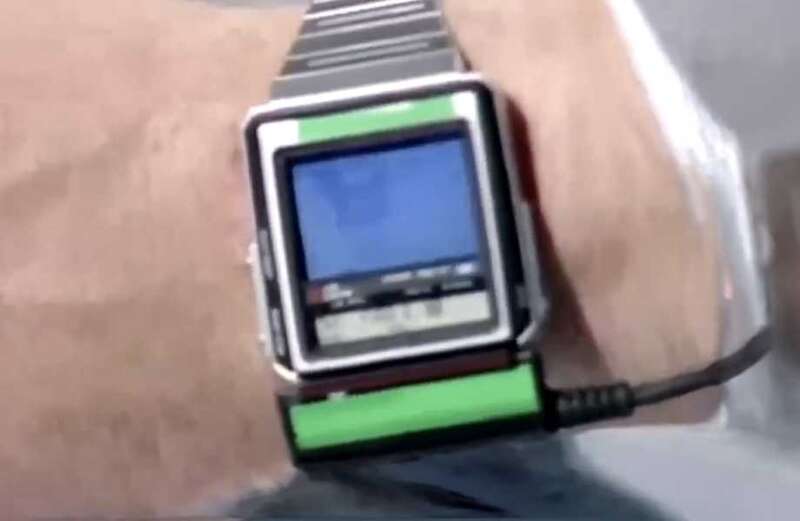A TELEVISION program made shockingly accurate predictions about 21st-century technology like VR headsets and smartwatches decades before their inception.
Footage has surfaced from a 1987 episode of Tomorrow's World, a BBC program where hosts speculated what the future would look like.

In one episode, they debated "what today's science and technology will do for tomorrow's person" with haunting precision.
Among their predictions for "the gear of the future" were holograms that fit neatly into a pocket, which could be seen as a nod to augmented reality technology.
AR devices like the Microsoft HoloLens and the original Google Glass are transparent, allowing them to project digital images over a user's real-world field of vision.
 Happy Valley's James Norton teases Tommy's 'deep hatred' in final series
Happy Valley's James Norton teases Tommy's 'deep hatred' in final series
One host also described doors that open with a fingerprint scan - something reminiscent of biometric technology.
This tech relies on measurements of human characteristics, including face scans and, you guessed it, fingerprints.
We employ this technology in our everyday lives, mostly to unlock our phones and laptops.
The first device to use biometric authentication was the Pantech GI100, created in 2004, but Apple is best known for the technology today.
The host subsequently revealed that he carried a built-in printer in his briefcase.
While tech companies haven't exactly mastered that technology yet, portable printers are widely available.
These wireless devices can connect to a device using Bluetooth and print from anywhere, even on the go.
Other guesses were less than accurate, like a suit that absorbed and released heat to maintain a constant temperature.
But two in particular stood out.
After proclaiming, "I carry my office 'round with me as well," the host flashed what appeared to be a smartwatch.
 His Dark Materials fans left open-mouthed after character’s shocking betrayal
His Dark Materials fans left open-mouthed after character’s shocking betrayal
"Not just a TV or a phone, but it's also satellite connected so I can receive information, any information I want, from any computer I have access to around the world," he continued.


Many people "carry their office" in their pockets using mobile applications like Google Teams or Slack.
But the watch itself appears eerily similar to today's smartwatches like the Apple Watch, which boasts Internet connectivity and fitness tracking capabilities.
Shockingly, the host pulled out what appeared to be a VR headset, calling it his "3D TV" and claiming it allowed him to "shut out the world".
The device looks nearly identical to Meta's Quest goggles, which replace a wearer's field of vision with opaque screens that display digital images.
The latest rendition of this technology, the Quest 3, relies on what is known as mixed reality technology, projecting virtually rendered objects into the real world.
Meta provides "playing a virtual piano on your coffee table" and "opening a portal in your living room" as two examples.

The Tomorrow's World segment aired in the early days of the Internet, shortly after personal computers were invented.
While some predictions fell short, it goes to show that even the most outlandish ideas are possible. Who knows what the future holds for technology?
